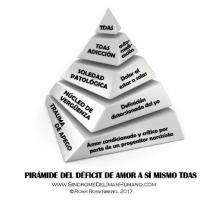María Sol Stagnitto: «When anxiety is not treated, it can become chronic»
Anxiety is not by definition a psychological problem; practically everyone experiences this phenomenon in their daily lives despite enjoying good physical and mental health. However, sometimes anxiety overwhelms us, and that is where psychological disorders appear that, if not addressed and overcome, can become chronic.
To understand the way in which psychotherapy helps people overcome these anxiety problems, we spoke with psychologist María Sol Stagnitto, expert in this form of discomfort.
- Related article: "Types of Anxiety Disorders and their characteristics"
Interview with María Sol Stagnitto: techniques to mitigate panic and anxiety
María Sol Stagnitto is a cognitive psychologist specialized in anxiety and emotion management. In her day to day, she helps many people affected by stress and anguish problems through psychotherapy programs and workshops developed by herself; In this interview, she tells us about how psychology works to combat disorders associated with anxiety.
How would you define the psychological problems associated with anxiety and the manifestation of a state of panic?
In principle, it should be noted that when we refer to anxiety as a problem we are talking about when it is in a dysfunctional intensity, because in reality we all have anxiety, which is normal and necessary for the survival. It is expected that this physiological reaction will be awakened in situations feared as real dangers.
But anxiety disorders can be generated when the person does not know how to manage their emotions properly, and lives for a long time in a situation of stress caused by an imaginary and not real danger, which can lead to an attack of panic. The symptoms of anxiety are diverse, and when several appear together, at least four, it constitutes a panic attack.
It is necessary to know that when the problem is not treated properly, it can become chronic, generating anguish, demotivation, insecurity, exaggerated fears and irritability, among others.
As for the psychological techniques used to learn how to manage panic and anxiety, do they all have something in common?
The most effective techniques to manage anxiety are based on Cognitive Psychology and meditation mindfulness. The essential resource for this type of treatment is psychoeducation, that is, learning to manage what we feel, to that these emotions do not overwhelm us, and what we think, to have a healthier mind and face thoughts dysfunctional. As well as learning to reduce physical symptoms and mental hyperactivity, with mindfulness tools.
In what context are these techniques most useful?
They can be used at any time, since they are adapted to the day-to-day maelstrom in which we live. They are simple techniques that make enormous changes in our way of life, and cleanse the mind of all the obsessive ideas that can harass us.
Are these techniques compatible with the online therapy modality?
I have been carrying out online sessions for years, since I am convinced that the tools that I want to transmit transcend the screen, and can reach people from anywhere in the world who need accompaniment psychological. The ideal for this pathology is to do a specific treatment to know how to deal with it.
The method I created unites the most useful exercises from both disciplines, Cognitive Psychology and Meditation. Mindfulness, based on all my experience, generating highly effective results in a short time. apply it. They learn to live fully, suppressing the state of hyperalertness and fear of disease.
What are the techniques to reduce the level of anxiety that you use the most in therapy?
There are many, but the most common are: questioning negative and obsessive thoughts, recognizing what are your anxiety agents, to be able to have a balanced life and apply mindfulness in your life daily.
They can feel very good from the first sessions, losing their fear of physical sensations, knowing that it is only a moment of discomfort and not resisting to easily dissuade them.
Finally, accepting emotionality allows a more accurate response to be taken, and prevents anxiety crises while maintaining optimal levels of it. We will always have anxiety, the important thing is to use these techniques so that it is not extreme and does not interfere with people's quality of life.
How does improvement occur in patients affected by anxiety problems?
To the extent that they consciously exercise the techniques, and work for their well-being, they see great improvements in all areas of their lives.
They increase personal security and self-esteem, they can enjoy the present moment without the mind taking them to the past or the future, they reduce social anxiety, and can function without shame in public, stop avoiding situations they fear, are calmer and without symptoms of panic, they learn to communicate assertively, reducing unnecessary discussions and protecting the healthy bonds that make us so happy. do.



